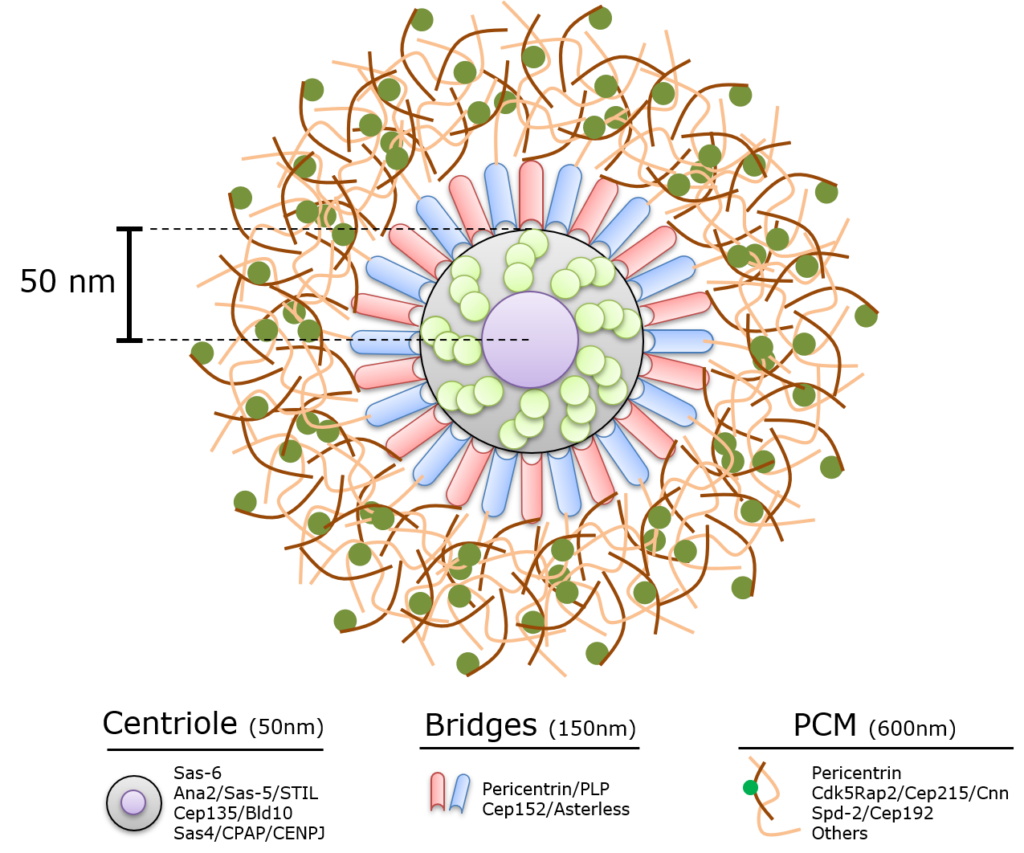The centrosome is a non-membrane bound organelle that serves as the main microtubule (MT) organizing center of most animal cells. Centrosomes function to initiate and maintain cell polarity, guide cell migration, direct intracellular cargos, and properly distribute other organelles. In mitosis, centrosomes are critical for accurate construction of the mitotic spindle to ensure faithful chromosome segregation to the two daughter cells. Thus, it is not a surprise that defects in centrosome function lead to a wide range of failures at the cellular level, which in turn, leads to tissue defects and many human diseases. The lab aims to determine how centrosomes are properly constructed from their individual parts and how centrosomes function in a wide range of cell types to avoid human diseases such as polycystic kidney disease, microcephaly, cancer and many others.
- A centrosome interactome provides insight into organelle assembly and reveals a non-duplication role for Plk4
Galletta BJ, Fagerstrom CJ, Schoborg TA, McLamarrah TA, Ryniawec JM, Buster DW, Slep KC, Rogers GC, Rusan NM
Nature Communications, 7:12476
- A yeast two-hybrid approach for probing protein-protein interactions at the centrosome
Galletta BJ, Rusan NM
Methods in Cell Biology, 129:251-77
Bridge Proteins
For many years now, our lab has focuses on understanding how the centrosome ‘bridge protein’ Pericentrin-Like-Protein serves as both a negative and positive regulator of PCM assembly. We are specifically testing the hypothesis that PLP functions as a molecular switch to repel PCM in interphase and anchor PCM in mitosis. We aim to discover the upstream regulators of PLP and its downstream effectors.
- PLP inhibits the activity of interphase centrosomes to ensure their proper segregation in stem cells
Lerit DA, Rusan NM.
Journal of Cell Biology. 2013 Sep 30;202(7):1013-22
- Interphase centrosome organization by the PLP-Cnn scaffold is required for centrosome function
Lerit DA, Jordan HA, Poulton JS, Fagerstrom CJ, Galletta BJ, Peifer M, Rusan NM
Journal of Cell Biology, 210(1):79-97
- Bridging centrioles and PCM in proper space and time
Varadarajan R, Rusan NM
Essays in Biochemistry, 7;62(6):793-801

